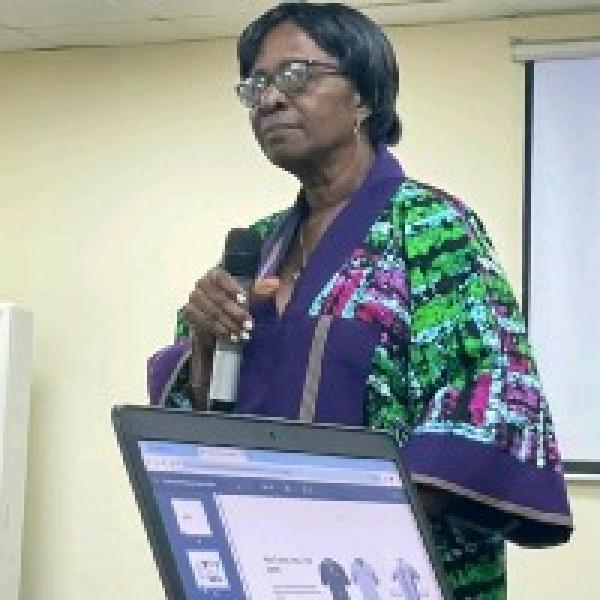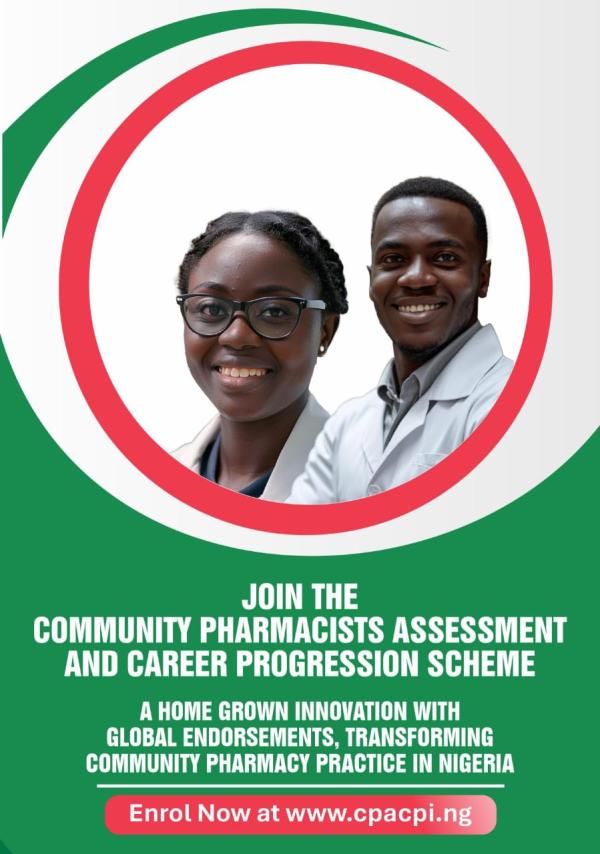
Pharm. Adeline Osakwe, Project Coordinator for Saving Lives and Livelihoods under APIN Public Health Initiatives Ltd/Gte did justice to the topic of Pharmacovigilance when she delivered a presentation on "Strengthening Pharmacovigilance System in Nigeria" at the 44th Annual International Scientific Conference of the Association of Community Pharmacists of Nigeria (ACPN).
Held at the International Conference Centre (ICC) on the eighth day of the conference, July 25, 2025. She emphasized that pharmacovigilance is an expanded role of pharmacists in optimizing patient care.
The session aimed to enlighten pharmacists and an array of healthcare professionals in attendance, highlighting the importance of robust pharmacovigilance practices in ensuring patient safety.
In her comprehensive presentation, Osakwe explained that pharmacovigilance involves ongoing safety monitoring related to medications and vaccines. "Our goal is to enhance the integration of community pharmacists in this critical aspect of healthcare by promoting digital data collection tools and encouraging Adverse Drug Reaction (ADR) and Adverse Event Following Immunization (AEFI) reporting," she asserted.
Osakwe emphasized the transition of health worker roles from passive to active participants in pharmacovigilance and outlined the necessity for increased awareness, capacity building, and technology adoption within the profession.
She referenced the World Health Organization's definition of pharmacovigilance as "the science and activities relating to the detection, assessment, understanding, and prevention of adverse effects or any other drug-related problems.” She specified that data from Nigeria's National Pharmacovigilance Center (NPC) indicated severe underreporting, with only 10% of expected reports being captured by the system in 2024.
However, she celebrated that pharmacists accounted for 21% of the over 4,000 reports entered into the national database that year, highlighting the need for community pharmacists to increase their involvement in monitoring and reporting drug safety issues.
Addressing the challenges facing pharmacovigilance in Nigeria, Osakwe pointed out issues such as poor ADR reporting, inadequate healthcare worker training, and limited public awareness. She emphasized the urgent need for community pharmacists to build their capacities in reporting ADRs and AEFIs. "Our objectives today include familiarizing participants with reporting tools and encouraging healthcare professionals to utilize these tools effectively," she stated.
Osakwe outlined the benefits of e-reporting, a web-based system designed to manage individual case safety reports. She urged pharmacists to embrace their role in pharmacovigilance and collaborate with stakeholders to ensure patient safety. "It is our responsibility to detect and report ADRs and AEFIs using appropriate digital tools. Empower yourself to function effectively in your role—most importantly, ‘do not harm,’" she advised.
As Osakwe concluded her presentation, she reinforced the expanded role of pharmacists in direct patient care and medication safety. "Pharmacovigilance provides a platform for the continuous monitoring of medicines and vaccines, allowing us to advocate for patient safety through effective practice.
While reporting is not mandatory, it represents a professional and ethical responsibility for all pharmacists," she concluded, encouraging attendees to take ownership of pharmacovigilance initiatives to enhance the quality of healthcare delivery across Nigeria.






















